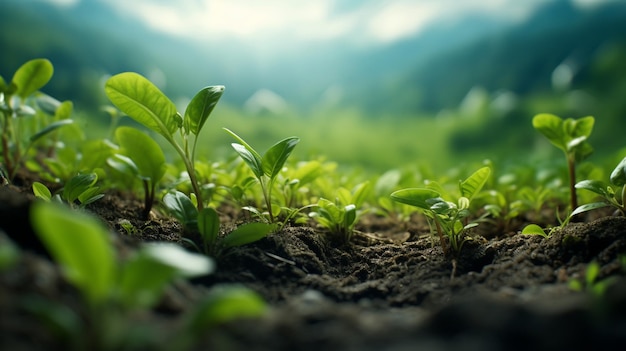The Benefits of Gardening at Home
Gardening at home offers countless benefits! For starters, you get to enjoy the freshest fruits, herbs, and vegetables right from your backyard. Plus, by growing your own produce, you help reduce the use of pesticides and toxins in the environment. Organic produce can be quite expensive at the supermarket, so growing your own can also save you money. Keep reading to discover some of the best gardening tips.
7 Easy Tips to Start Gardening
Plan
Before you start planting, it’s essential to plan your garden. This will help you achieve the best possible harvest. Decide which fruits, herbs, and vegetables grow best in your area and find local sources that sell organic seeds. Determine how much space you can dedicate to your garden and set a budget. If you have a smaller yard, consider a container garden. You can also create a small herb garden using pots and boxes. By planning, you can coordinate what plants to grow in each season—spring, summer, fall, and winter—to ensure a year-long harvest.
Less is More
While it might be tempting to plant every edible plant you love, it’s better to start with a small, manageable garden. Planting too many of one type of plant can lead to an overabundance, like having to give away tomato sauce to all your neighbors. Start small and expand your garden each season. Experiment with different plants to see what grows best. City dwellers can create a small rooftop or balcony garden with pots and raised beds. You can also grow plants indoors or in a greenhouse during the winter months. For indoor growing, I recommend using an AeroGarden, which works quite well.
Choose Productive Plants
Select plants that thrive in your climate and geography. Think locally. For example, trying to grow avocados in Maine can be frustrating. Some plants may grow well but have different economic benefits. Corn, for instance, is cheap but labor-intensive, while berries are expensive in stores but easy to grow with minimal effort. They require little money or time to cultivate!
Share and Barter
If you buy a large packet of seeds and have extras, share them with your friends and neighbors. You can also share gardening equipment. By planning and sharing, you can reduce the costs of buying heavy equipment on your own, which helps keep overall expenses down.
Go Organic With Your Supplies
Purchase organic seeds locally or by mail order. Avoid using chemical pesticides, herbicides, or any other synthetic chemicals. There are many natural products available for treating weeds, diseases, pests, and soil issues. These natural products are much safer and better for the environment. Ensure your planting area is not contaminated with lawn fertilizer or other chemicals. Try to find organic soil and compost, or make your own compost by recycling your food waste.
Complement Your Plants
Research traditional methods of natural gardening to grow plants that complement each other, such as permaculture. For example, beans and squash grow well together, as do potatoes and corn. Complementary growing helps improve soil nutrients and overall plant success.
Have Fun!
Gardening can be a wonderful family activity. Remember, no garden is perfect. Choose some of your favorite plants and enjoy watching them grow.

